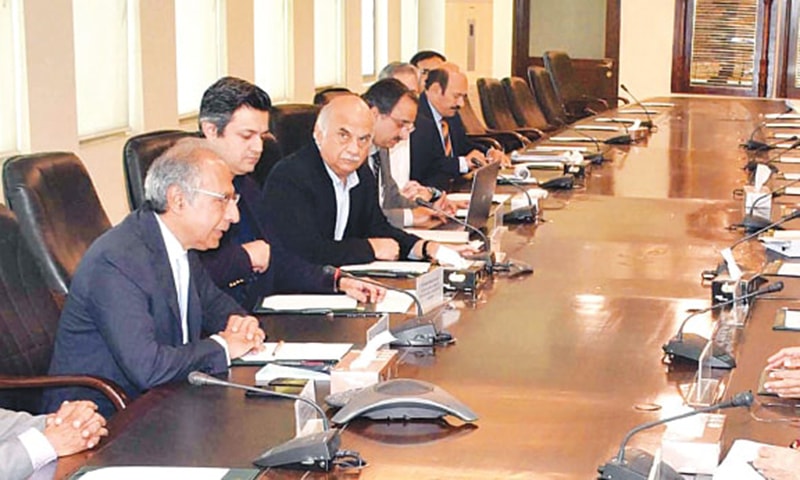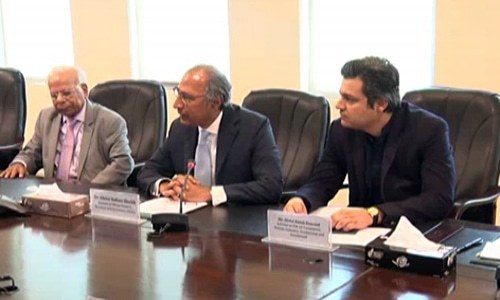ISLAMABAD: The timeline of the International Monetary Fund (IMF) bailout package has complicated the launch of government’s first tax amnesty scheme, Dawn has learnt from knowledgeable sources in the Finance Division.
Read: FBR told to make Asset Declaration Scheme 'more attractive'
In a meeting held to discuss the tax amnesty scheme — Asset Declaration Scheme — under the leadership of Finance Adviser to Prime Minister Dr Abdul Hafeez Shaikh, the talks centred on two important issues: tax rates and the duration of the scheme. However, the discussions with the International Monetary Fund and the review meeting of the Financial Action Task Force (FATF) will dictate the scope and duration of the proposed amnesty scheme.
Hafeez gave directions to the Federal Board of Revenue (FBR) to devise a successful communication strategy in order to ensure people can easily comprehend the scheme. The tax officials were given a deadline of two days to refine the scheme, the sources added.
The adviser is also expected to discuss the broad contours of the scheme with the visiting IMF team expected to reach Islamabad by month-end where he will negotiate the possibility of launching the proposed scheme during the IMF programme, the sources claimed, adding that it was the only way which can ensure maximum time is available for individuals willing to avail the scheme.
However, before sharing the new draft with the IMF, Prime Minister Imran Khan will be given a final presentation to seek his input.
The fate of the scheme depends on the IMF whether it allows the duration to be extended during the bailout programme. Otherwise, the government will have no option but to offer the scheme for a limited time until June 30.
However, the government still has two months before the June 30 deadline and in the previous amnesty scheme announced by the PML-N government, the FBR had collected Rs84 billion in just 13 days, the sources claimed. “We believe that people are anxiously waiting the launch of scheme,” the sources added.
The government can also extend the period in case of depositing the tax money and repatriation of cash assets. In case of repatriation, the time period can also be extended to one year, the sources added. However, individuals availing the scheme will have to declare their undeclared assets by June 30, 2019.
Moreover, the tax payments can also be made in instalments similar to the model adopted by the Indonesian government which allowed those availing the scheme a period of one and a half year for repatriation of foreign assets.
Published in Dawn, April 24th, 2019














































